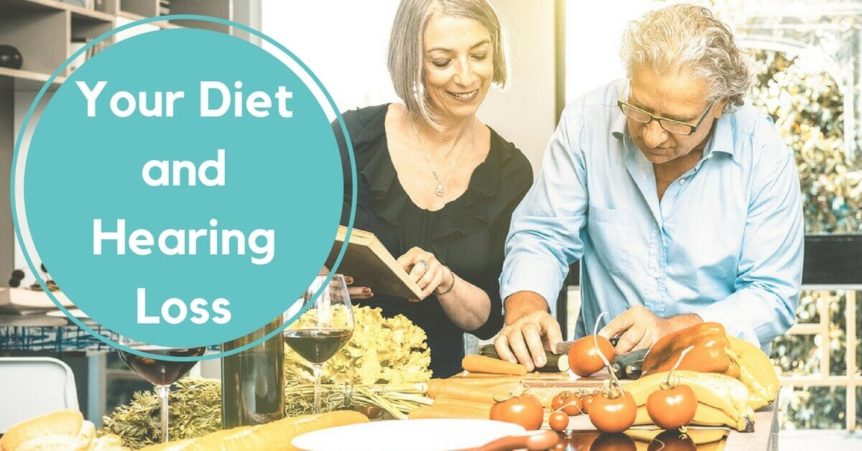Did you know that hearing loss is the third most common medical condition in the United States? Hearing loss follows heart disease and diabetes, and it affects 20% of the population. However, because it is an invisible condition that tends to occur gradually, people do not immediately know the signs of hearing loss.
Unfortunately, untreated hearing loss could lead to negative consequences to one’s overall well-being. Untreated hearing loss has been linked to depression, stress, and anxiety, as well as the potential risk of developing dementia. This is why adults above the age of 50 are encouraged to have their hearing tested annually – to ensure their hearing abilities are not compromised.
At the same time, a growing body of research has indicated that healthy eating does have a positive effect on your hearing abilities.
The Connection Between Healthy Eating and Hearing
Our auditory system relies on a good supply of blood flow, carrying oxygen to the tiny hair cells of our inner ears. Some forms of hearing loss occur due to problems with the cardiovascular system. Researchers have found that by including certain nutrients in our diets, we may support our auditory system “to help boost hearing or even prevent or delay hearing loss.”
In a recent publication from the Daily Sentinel, Dr. Joe McDermott points to nutrients such as omega-3 fatty acids, folic acid, and vitamins B12, C, D, and E, among others. Let’s take a look at how these nutrients support healthy hearing.
Omega-3 Fatty Acids
Omega-3 fatty acids, commonly found in fish such as salmon, tuna, and sardines, have anti-inflammatory properties. Anti-inflammatory agents help to strengthen blood vessels, which are plentiful in our inner ear. Researchers have found that “people who eat two or more portions of fish per week are 42% less likely to develop presbycusis compared with those who do not eat fish on a regular basis.”
If you’re not a seafood lover, you may also find omega-3 fatty acids in foods such as flaxseed, walnuts, soybeans, and spinach.
Vitamins and Nutrients
In addition to omega-3 fatty acids and antioxidants, Dr. McDermott recommends a number of other nutrients that would support both hearing health and overall health. These include vitamins B12, C, D, and E, as well as zinc and magnesium. Foods such as fish, tofu, red meat, eggs, and low-fat dairy provide vitamin B12. You may find vitamin C, D, and E in assorted fruits and vegetables, from berries to citrus to peas to broccoli. Spinach tops the list as a vegetable that provides a great amount of zinc and magnesium. These vitamins and nutrients have been found by researchers to support hearing health, help to prevent noise-induced hearing loss or presbycusis (age-related hearing loss), and promote better overall health.
Antioxidants May Help Reduce Noise-Induced Hearing Loss
In a study from the Kresge Institute of the University of Michigan, Dr. Colleen Le Prell and Dr. Joseph Miller made an important discovery. Guinea pigs were given certain antioxidants and vitamins (A, C, E) and magnesium before and after exposure to high levels of noise (the highest was 120 decibels), over five days.
Dr. Le Prell and Dr. Miller found that “high doses of certain antioxidants reduce noise-induced hearing loss in animals when taken both before and after loud noise.” More importantly, they found that “noise exposure damages sensory cells by the formation of free radicals, damaging molecules known to cause cell death.” The good news is that “damage to sensory cells can be prevented by antioxidants that prevent free radical damage by binding to free radical molecules and rendering them harmless.”
In other words, Dr. Le Prell and Dr. Miller concluded that the combination of vitamins A, C, E and magnesium “worked in synergy to prevent cell damage” and “showed significantly less noise-induced hearing loss.” If you are exposed to loud noise on a regular basis, you should use appropriate ear protection. At the same time, Dr. Le Prell notes that “people would likely benefit by consuming a pill or nutritional bar before going to work in noisy environments, or attending noisy events…we think this micronutrient combination will work even post-noise.”
Have you experienced changes in your hearing abilities? You don’t have to live with untreated hearing loss. Visit us at Custom Hearing Solutions today.

